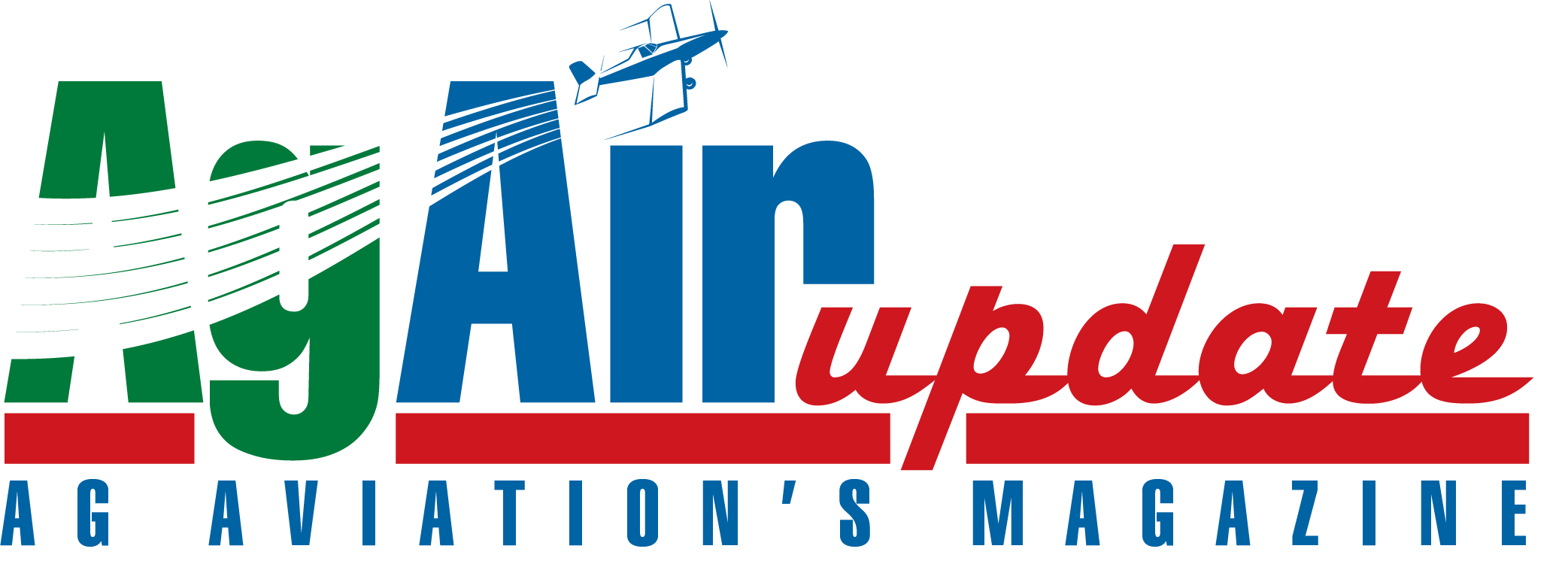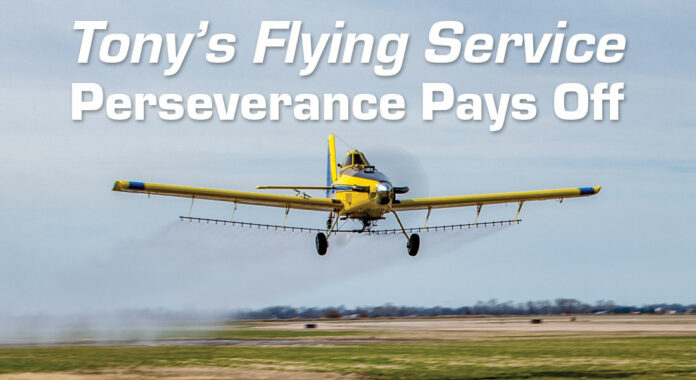History
Jeff Seewald’s story starts like many others in the industry; growing up in a farming background in eastern Colorado. Although his family did not have their own aerial application business, Jeff fueled his aviation passion from an early age thanks to a satellite strip that was located on the family farm. In his late teens, Jeff moved on from farming as his father’s deteriorating health forced the sale of the farm where he was raised. Looking at the next step in his life, he decided on going to college, which then led to the establishment of Seewald’s first foray into the business world – running a successful diesel repair business.
The success of his new endeavor gave Jeff the ability to indulge in his passion for aviation. He soon gained his private pilot license in 2005 because “it sounded like fun” at the time. However, the labor intensive diesel repair business began taking a physical toll on his body. After his second back surgery, the realization set in that this type of work was not going to be his lifelong career. “The diesel repair business is pretty hard on you, constantly lifting heavy things. So I decided I probably needed to make a change, and the only thing I could think that I wanted to do or pursue would be something in flying, because I love to fly.”
A longtime friendship with the aerial applicator that worked the strip at his old family farm would offer Seewald the first step in his agricultural aviation career path. He took the advice from his friend to pursue training at the now-defunct Flying Tigers Aviation flight school in Louisiana if he was serious about pursuing a career path in the industry. Jeff enrolled with Flying Tigers in 2011.
After returning from Flying Tigers, his next step was, in his words, attributed to equal parts luck and determination in order to succeed in the industry. Jeff explained the catalyst of many aviators is time and insurance. He had plenty of flight experience, but not enough in an ag plane to be insured. He stated what followed was months of hitting the phones and calling “every ag operator that would take my call” to try and find his first seat.
His first opportunity came from a conversation with a friend flying in Torrington, Wyoming, who mentioned Tony Martinez, owner of Tony’s Flying Service in Great Bend, Kansas may be looking for a pilot. After a good reference from his friend, Jeff was on his way to meet up with Martinez in Kansas. Tony’s Flying Service was founded in 1984 and at that time flying an AT-402 and a 600HP radial Ag-Cat.
Jeff began his career in that Ag-Cat, “if you haven’t flown an Ag Cat, I highly recommend it; they are a lot of fun,” he stated, reminiscing fondly of his time flying for Martinez in the Ag-Cat.

Getting Started
After working for Martinez for two years, Tony talked about retirement, stating that the time was approaching for him to step down. It was at that time Jeff decided to attempt to buy the business from Martinez. In the fall of 2013, the two worked out their business deal, and although the business name would stay the same, Jeff took over the company as his own.

Location
Tony’s Aerial Service is located in Kansas, and when Jeff was looking for his first job, he was still located in Colorado. He still maintains a home there, splitting his time between Kansas and his home in Colorado. His wife Leslie, still holds a role as a successful real estate agent specializing in high-end real estate while helping out with the day-to-day running of the business.
“Splitting the time can have complications for sure, but for now, she comes out here 10 or 12 weeks a year, and I spend the wintertime in Colorado,” he said of the unique situation of maintaining two houses and businesses in two different states.
Growth
As Jeff took over the business and continued to build up the company, he realized that the AT-402 might not be the ideal aircraft for the future. He upgraded to an AT-502 in fall 2013 to cover more ground.
“I ended up buying an AT-502 out of Illinois. I thought that this operation needed a bigger aircraft. Tony worked hard and did a good job with the flow to get stuff done, but he worked his tail off too. So I thought a bigger airplane would be better to allow more coverage. That extra 100 gallons makes a huge difference, especially with the field size around here.”
The operation went from an AT-402 and an Ag-Cat to running two AT-502s, the first in 2013 and the second added in the spring of 2020 as growth continued.
Jeff stated that an aircraft larger than the AT-502 would not work due to operational costs for the company. The 500-gallon capacity of the 502 is, in his view, the perfect aircraft for their operation, where much of their clientele is within just 30 miles of their home airport located at the Great Bend Municipal Airport.

Operations & Equipment
Both AT-502s have identical setups in the cockpit with a SATLOC G4 GPS with Intelliflow. Transland spreaders are used for dry work and each has the Garmin 510 Area GPS with XM weather.
Pilots
Retaining pilots is a well-known struggle amongst operators, which Tony’s Flying service is no stranger to. The company lost a previous pilot to the corporate jet world, but Jeff takes it in stride, hiring a new pilot who will fill the seat in the second aircraft during the season.
“That’s a tough thing right now. I’ve mentored two pilots already from zero hours in ag and put them in a 402 or 502, and so far, I’ve struck out on both of them; one is flying jets and one is a farmer that sprays just for himself now. But I think that we have to figure out how to get new young pilots out there as an industry. The pilot pool is very, very shallow. I got fortunate this year with my new pilot, Scott, but I have three friends of mine that are looking for pilots and there are a lot of airplanes just sitting this year because there is nobody to fly them.”
In addition to pilots, Jeff hired Cameron Sweitzer to assist with office tasks who also functions as his loader at the airport. Jeff states “I would never be able to get it all done without him.”

Crops
Tony’s Flying Service has a diversified portfolio of clients and crops, spraying mostly wheat in the springtime, followed by corn, soybeans, milo and finishing the season on alfalfa in the fall.
“We’ll spray wheat in March till the second week of April into May and then June is usually slower, where we will pick up odds and ends here and there. But then in July, the corn-soybean fungicide-miticide spraying begins. We spray a lot of herbicide, insecticide and fungicide. We also treat cover crops by seeding, wet and dry fertilizer, as well as alfalfa and other plant seedlings,” Jeff stated.
The company is in a fortunate position for dry work, being somewhat the only game in town. “There’s a couple of us around here that do dry, but not very many. Most people have a spreader, but it’s work to put the spreader on and off that most people don’t want to do. It’s just time-consuming to take the full spray gear off, but you can charge a little more for seeding. So it’s worth it to me. Plus, the farmers need it, so we’ll make it happen.”
Jeff states that although the dry work is necessary, it only comprises about 5% of the company’s actual volume of work annually, completing 95% of their work with liquid applications routinely spraying between 110,00 to 160,000 acres annually.
Although most of the work is within 30 miles of their base in Great Bend, Jeff stated that they also perform some contract work in Illinois and Wyoming each year to help other companies that they have relationships within the business.
Growth
As the company grows, Jeff’s focus has always been on the customer’s needs, forming ongoing communications with the growers and farmers that the company services. He stresses always continuing communication with customers to make sure that they provide what the customer needs and ensures there are no concerns or other opportunities that they can also help the customer address from an ag aviation standpoint.
When Jeff took over the business, Tony’s Aerial Service was spraying only about 50,000 acres annually. Thanks to his business sense and customer focus, the business has grown to more than double, almost triple that acreage covered annually.
“My first year here, I sprayed 56,000 acres; since then, we haven’t been under 100,000. I think the second year was 80,000, but we haven’t been under 100,000 since year three.”
Customer satisfaction and word of mouth among farmers aren’t the only things attributing to the company acreage expansion. According to Jeff, advances in technology, where farmers who are utilizing aerial application are now seeing real crop improvements and noticing more plant health, also is a driving factor. This advanced application leads to higher-yield crops that can sometimes mean an additional 20 bushels of crop production, equating to actual return on investment after the aerial application has taken place.
Taking a personal interest in what his customers are doing has always been a passion for Jeff, who prefers face-to-face interactions. “I try to meet them and have that kind of a relationship with them. So if they have questions, they feel like they can call, and I’ll answer any questions they have honestly. Whether it’s a weed in the field that needs to be sprayed, or whatever the need is. If there is nothing we can do about it, or the timing is not right, I’ll tell them. I don’t want to over promise a situation.”
Rather than just being an ag pilot, Jeff tries to understand both the crops he is spraying and the chemicals he is using. He spends a great deal of time reading up on company-supplied literature on chemicals, speaking to agronomists and asking questions in addition to going to as many sessions as he can at both the NAAA Ag Aviation Expo and the KAAA state convention. Jeff has served as the president of the Kansas Agricultural Aviation Association for the last two years. Learning about the crops and chemicals he uses has become a passion. He uses that knowledge to better his business and that of his customers.

Weather
Great Bend, Kansas is known for many things. One thing, in particular, is wind. Seeing what appears to be an ever-present wind on the airport, Jeff states it can be a challenge to work at times, but the company takes it in stride and makes allowances when they fly to get the job done. This means that the company may have to attack one field from one direction one day, but a wind shift means they may also have to abandon that day’s flying and return on a second day to complete the field. It means varying flight times, but Jeff has learned to do whatever it takes to get the job done for his customers around the unique challenges the wind throws at their location.
Training
As he experienced in the early days of his career, the training versus experience versus skills and hours required for insurance can become a tricky issue for ag operators. Jeff is still a huge proponent of pilots attending schools to provide the base-level training and skills required to get into the seat to fly your first ag job. Jeff believes something has to address the training gap in the industry. He took a hands-on approach in addressing the issues with his own low-time ag pilots by approaching his insurance underwriter directly and trying to find a solution.
“I wrote a letter to the insurance company and said here’s what I have. I vouched for my pilot; I was fortunate that they worked with me on it, which was amazing. It cost me more money, of course, but they could insure him flying the airplane while putting water in it. After a certain amount of hours and more money, they allowed him to fly over crops.”
Safety
One of the hardest things in ag aviation, according to Jeff, is learning not to push. Pressure to push on time, on loads, on weather and many other factors. In his mind, him not pushing the envelope has kept him and his other pilots over the years safe. Tony’s Aerial Service constantly deals with wind issues, and the not-pushing mentality is an excellent reminder daily not to exceed the envelope, and to always err on the side of caution when it comes to flying. As Jeff so passionately states, “There is no such thing as an agricultural emergency that requires pushing the limits of your aircraft, skills or the weather in which you fly.”
No matter what the future holds for Tony’s Aerial Service and Jeff Seewald, it is abundantly clear that Jeff and his team service well the farmers of Barton County and its surroundings. They continue to strive daily to ensure that they provide a needed service with the most up-to-date knowledge to back it up.






